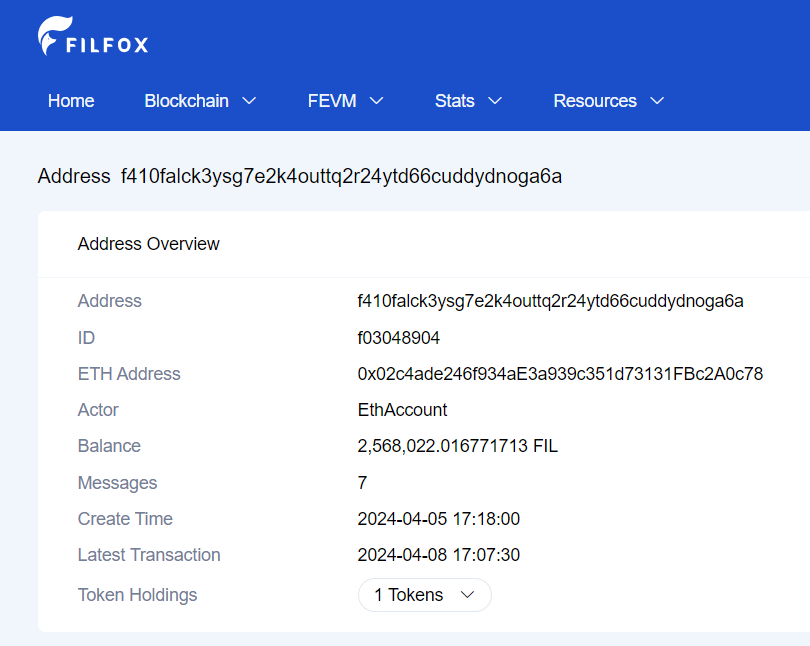STFIL Raises Concerns Over Token Movements and Protocol Upgrades Amidst Chinese Police Investigation

Authorities in China have initiated an investigation into the core technical team responsible for managing the STFIL Protocol, a prominent decentralized finance (DeFi) protocol operating on the Filecoin network.
The project said a large amount of Filecoin tokens were moved to an unknown address that now holds around $23 million in FIL.
STFIL’s Core Technical Team Under Investigation: Filecoin Tokens Moved to External Address
We believe that the STFIL core technical team is under investigation by local Chinese police, and we understand lawyers have been hired to understand the current situation and provide legal assistance to the individuals under detention.
Last week, when the core technical team…
— STFIL Protocol 🏔️ (@stfil_io) April 9, 2024
In a post on X dated April 9, STFIL asserted that its core technical team members are currently under investigation by local Chinese police. According to STFIL, lawyers have been engaged in comprehending the current situation and providing legal assistance to the detained individuals.
According to reports, the investigation has been intensified following the mysterious movement of FIL tokens housed within the STFIL platform to an external address.
The team also disclosed that Filecoin tokens from the platform were transferred to an external address last week, coinciding with the detention of core technical team members. The address currently holds 2.5 million FIL tokens, equivalent to $22 million. This transfer occurred amid an unscheduled update to the protocol, which the team described as “abnormal.”

In response to these developments, STFIL is actively seeking assistance and urging the community to track the unknown address and discuss measures to safeguard the interests of stakeholders.
“We hope that the community can help track this unknown address and discuss ways to protect the interests of stakeholders,” STFIL added.
STFIL operates as a liquid staking protocol on Filecoin, enabling users to earn staking rewards on their FIL tokens while utilizing them in decentralized finance (DeFi) by receiving liquid staking tokens (LSTs) in exchange for their deposits. However, its total value locked has declined significantly, standing at $40 million—a nearly 60% drop since the beginning of April.
Community members on X who claimed to have staked their FIL tokens on the platform have been engaged in discussions regarding potential methods to recover their funds. Some have questioned the legality of authorities seizing their assets.
Despite these troubling developments, the Filecoin token has exhibited resilience. On April 9, FIL reached a seven-day high of $9.32 with a 24-hour trading volume of $265 million. Currently, the token is trading at around $9.12, according to data from coin information tracker CoinGecko.
Chinese Authorities Crack Down on Filecoin Ecosystem Amidst Tightened Crypto Regulations
The incident involving STFIL follows previous legal actions by Chinese authorities against entities involved in the Filecoin ecosystem. Last August, a local Filecoin mining firm and its executives were charged with allegedly orchestrating an $83.3 million pyramid scheme. Additionally, in 2021, local police seized $62 million from a Filecoin miner.
Despite mainland China’s adversarial stance toward cryptocurrencies, the government has initiated a blockchain initiative. This move contrasts with China’s tightening control over the crypto industry, which began in 2017 when Chinese Bitcoin exchanges were ordered to cease operations.
Although crypto trading is banned, 33.3% of Chinese investors hold substantial amounts of stablecoins, ranking second only to Vietnam, with 58.6%, as reported by Vietnamese venture capital firm Kyros Ventures in December 2023.
Despite the trading ban, traders in mainland China have found ways to work around the restrictions, predominantly by utilizing centralized crypto exchanges, according to Kyros Ventures’ report.
In 2021, Beijing intensified its crackdown by banning crypto trading and mining and prohibiting offshore exchanges from operating within the country. Before the crackdown, China controlled most of the Bitcoin mining hashing power worldwide.
Responding to calls for enhanced industry oversight, China is preparing a significant amendment to its Anti-Money Laundering (AML) regulations to encompass cryptocurrency-related transactions. This forthcoming amendment, the first major revision to China’s AML regulations since 2007, seeks to impose stricter guidelines to combat crypto-related money laundering.




